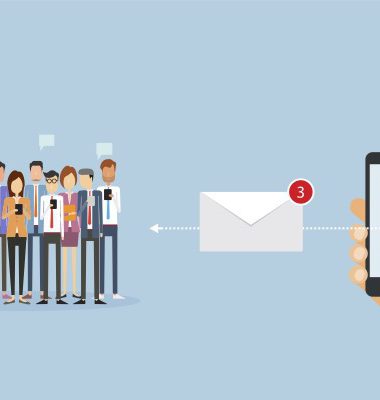If you’re not hearing – or saying – the ‘r’ word on a daily basis by now, frankly, I envy you. With the expectation that the UK economy will shrink for a third consecutive quarter in Q4, recession is a concept we all have to get used to.
All recessions are different, and this one – caused in part by a spike in global energy prices and coming on the back of two years of components shortages – has the potential to be particularly painful for the automotive and industrial sectors.
The temptation – in some cases, the necessity – will be for companies to immediately cut their operating budgets for 2023, and as sure as day turns to night, CFOs across the globe will be looking very closely at the marketing and communications lines on their ledger sheet.
Typically, when times get tough, B2B marketing and communications budgets are among the first things to get cut. To the untrained eye, marcomms activities can appear disposable – sometimes frivolous – with results that are difficult to quantify (although any good marketeer will understand that’s rarely the case).
Having weathered several recessions and economic downturns as an agency, one argument that we’ve come across many times in the past is that ‘everyone is struggling’. The premise of this argument is that if the sector and the business’s customers are struggling, they’re not in the mindset to buy and so they’re not susceptible to marketing or communications.
“Best to wait,” they say, “until things get better.”
But to do this is to miss the point of what communications is here to do, and why good B2B communications is effective.
If you work in B2B communications, you’ll know that your business audience isn’t made up of whole companies but instead key stakeholders within companies. We might need to reach the fleet manager, the HR lead and a procurement officer within a certain organisation but we rarely need to get the entire company’s buy in.
So, in reality, we’re still just communicating to people – individuals who have their own professional cares, concerns and challenges. When we realise this, the ‘Best to wait’ argument falls down.
Let’s take ourselves out of the business world and think about it another way…
If you had a friend who you knew was going through a rough patch, would you decide to stop talking to them because they’re finding life hard? Or would you double down your efforts to stay in touch?
In 2020, when the Covid-19 pandemic hit, most of our lives were thrown into some degree of crisis, whether emotional, medical or financial. For many of us, we tried so hard to keep in touch with one another that we completely changed the fortunes of video conferencing platform providers – Zoom quiz anyone?
When times are hard, we want to hear from other people more.
This stands to reason in a professional setting, too. Your customers are going to be facing new challenges brought about by this recession – as an expert in your field, your company can use communications to help them navigate these challenges and in doing so build a stronger relationship.
Your company needs to be willing to prioritise non-sales messages and react quickly to developing issues, while having the communications dexterity to weave in important brand values that keep your offering front of mind.
All of this is well and good, but of course if your company’s budget is being revised down, marketing and communications won’t be immune to cuts. However, now isn’t the time to turn off the tap completely.
Instead, communicators need to focus on activations that are proven, cost effective and measurable, while lending themselves well to the softer, less sales-focused messaging. Consider prioritising social media, content marketing and media relations, for example.
If you’re still not convinced, consider this. A 2021 YouGov survey found that 35% of Britons value their friendships more than before the start of the pandemic. By the same reckoning, those companies that embrace communications during this recession – who don’t just wait for things to get better – will come out of it with stronger, more valuable customer relationships.




